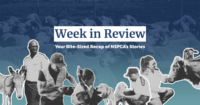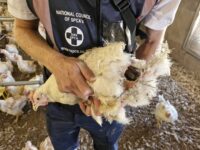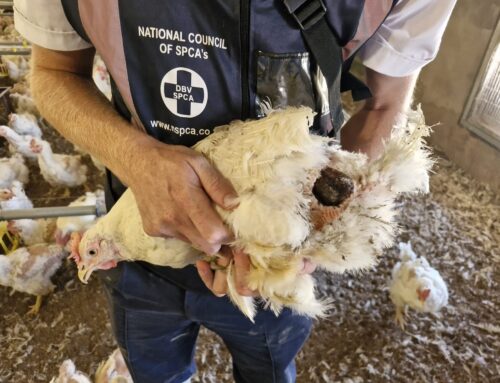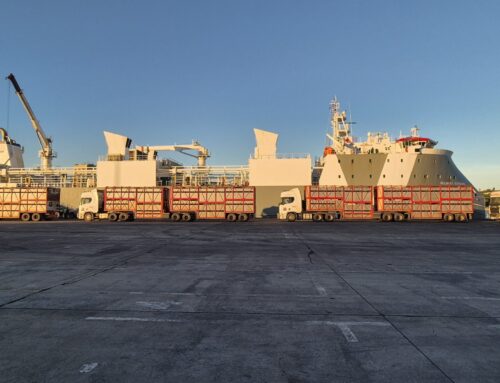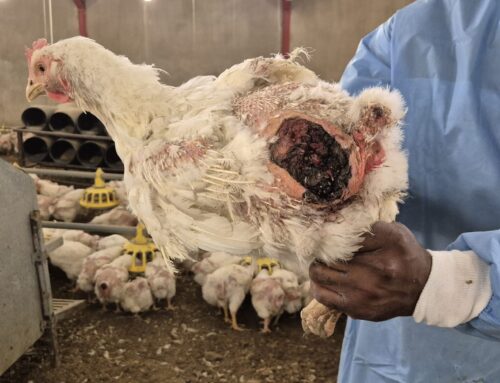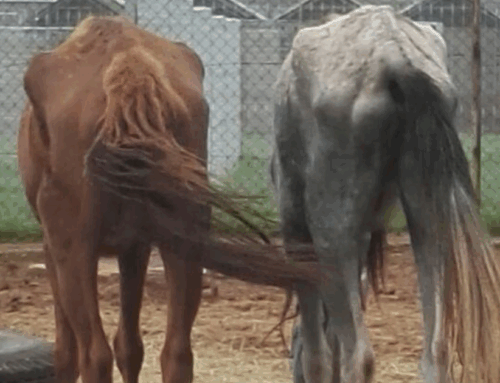The National Council of SPCAs (NSPCAs) received long-awaited correspondence on 15 October 2020, exactly a month later than promised, from the Grahamstown High Court. This included the “reasons” for the NSPCA’s Part A application being set aside on 25 August 2020, resulting in the Al Messilah livestock vessel leaving South Africa in September 2020 with some 51000 sheep and 650 cattle.
In his 20 pages of written reasons, Acting Judge Dukada quoted countless case law extracts and he further stated, “Significantly, the regulatory authorities at the times they inspected the sheep did not raise any queries.”. This begs the question, why would the regulatory authorities raise any queries when animal welfare is not their mandate?
Acting Judge Dukada ultimately surmised that the NSPCA’s allegations of what transpired in 2019 concerning violations of the Animals Protection Act, No. 71 of 1962 were not reasonably likely to recur in 2020. This conclusion was reached despite the fact that the NSPCA laid further criminal complaints regarding the September 2020 export which leaves one confused by Acting Judge Dukada’s findings.
Nevertheless, Acting Judge Dukada’s primary reason for permitting the most recent export of sheep relates to a balance of convenience – this balance being between the financial loss that could be suffered by the respondents should the export be prevented versus that of the welfare of the exported sheep.
The Judge stated, “It cannot be gainsaid that the First and Second Respondents have already suffered substantial damages for the delay in transporting the sheep by ship from East London Harbour to the Equator. In their answering affidavits, the First and Second Respondents mentioned a financial loss of R139, 431, 135, 14 per day incurred since 9 June 2020 in order to maintain the 70 sheep at the Castledale Feedlot; and approximately R591,000, 00 per day incurred to keep the MV Al Messilah in the East London Harbour since June 2020.” (sic).
Acting Judge Dukada further stated that “the NSPCA has placed great reliance on heat stress which causes extreme cruelty to the sheep. There is a serious dispute of facts between the parties as to whether the heat stress is avoidable by modern technology”. Our legal team believe that our papers in comparison to the respondents are more comprehensive and are higher in evidentiary value, as recognised by the late Judge Jaji and Judge Bloem, who heard and granted the previous interim interdicts. There was an overwhelming amount of evidence submitted and this caused the court papers to exceed 2300 pages.
Interestingly, Acting Judge Dukada stated, “The main problem with the case presented by the NSPCA is that it has ignored the Terrestrial Animal Health Code (2019) published by the World Organisation for Animal Health of OIE – chapter 7.2 of the OIE Standards Transport of Animals by Sea.” (sic).
The primary legislative framework relating to animal offences within South Africa is the Animals Protection Act, No. 71 of 1962. The Judge however deferred to ”international law” or guidelines declaring that South Africa is bound by it. It is however perplexing as it is not even recognised as such by the international body that developed and maintain these guidelines.
The application was not dismissed nor granted, it seems to have been an impractical compromise and therefore, the NSPCA’s legal team launched an application for leave to appeal, however, Acting Judge Dukada has the right to decide whether leave to appeal will be granted. If he does grant leave to appeal the matter, it will either be heard by Judges in the same court – ie Grahamstown, or he may grant leave to appeal to the Supreme Court of Appeal, in Bloemfontein, which is what our legal team have asked for. If the Acting Judge does not grant leave to appeal, the NSPCA’s legal team will have no option but to petition straight to the Supreme Court of Appeal.
“We are disappointed that the company’s financial loss superseded the suffering of the 51 000 sheep that were transported over the equator at the hottest time of year – a financial loss that could have been completely avoided as the company knew well in advance that the NSPCA intended to bring about High Court proceedings. It is unacceptable that animals suffered in the name of money” said Grace De Lange, manager of the NSPCA’s Farm Animal Protection Unit.
Regardless of the above, the NSPCA is still pursuing the outright ban for live export of sheep from South Africa across the equator.
If you are as passionate about animals and their well-being as we are, consider supporting our causes by donating.
Latest News Posts
Will You Be the One Who Takes Action?
Most people will scroll past this. But will you be the one who stands up for animals?
Animal welfare isn’t always in the spotlight, but it changes lives – for every neglected, abused, or suffering animal we help. Our teams work tirelessly, often behind the scenes, ensuring animals across South Africa are protected.
This work is relentless. The challenges are immense. But with more hands, hearts, and resources, we can do even more.
The equation is simple: the more supporters we have, the greater our reach, the stronger our impact.
Be part of the change. Become an NSPCA Project Partner today. From just R50 per month, you can help ensure that no animal suffers in silence.

